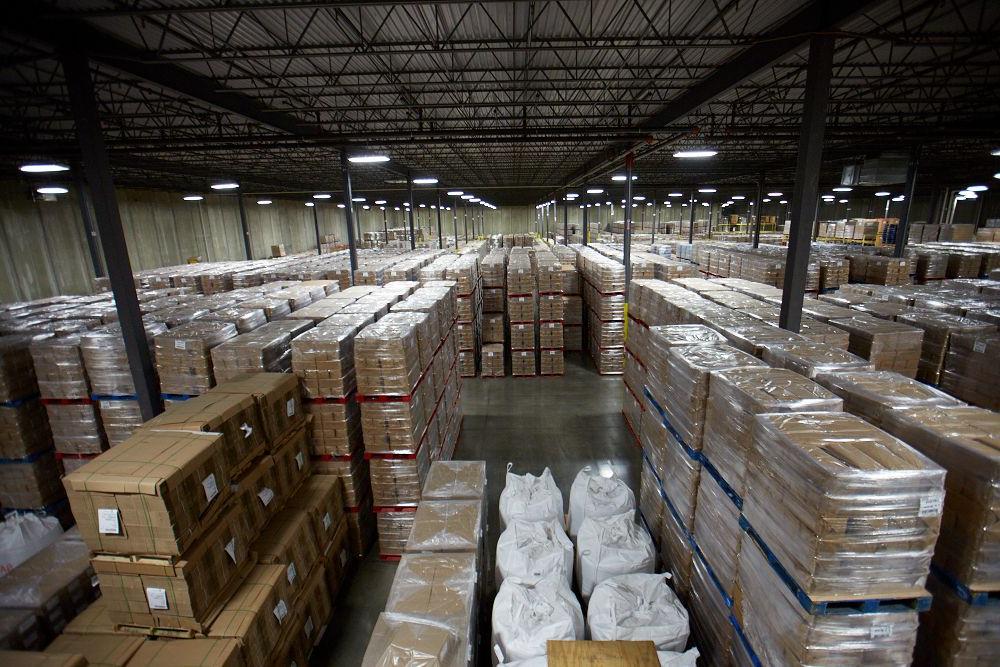In the bustling and ever-changing landscape of the food industry, one vital element consistently underpins its operations, yet often escapes the limelight – logistics. 正是这种看不见的力量使覆盆子从智利阳光明媚的农场运到加拿大超市寒冷的货架上, 或者是小麦粉从堪萨斯州繁忙的磨坊运到纽约热闹的面包店. 本文探讨了物流在原料运输中所起的重要作用, 为消费者提供新鲜、安全、准时送达的食品,揭示其中的复杂性和障碍.
Global ingredient transport is an intricate endeavor, far more involved than simply ferrying an item from origin to destination. It is a journey that requires an array of vital stages such as procurement, handling, storage, packaging, and timely delivery, each carefully coordinated and executed under specific conditions. The logistics industry, in response to the broad and perpetually shifting demands of the food industry, has needed to innovate and evolve continually. This evolution has taken place with an unwavering commitment to safety, traceability, and sustainability.
Over time, logistics has emerged as the backbone of the food industry, its invisible hand steering the course of ingredient transportation. The realm of logistics extends beyond the delivery trucks on our highways; it penetrates deep into the realms of technology, regulatory compliance, and environmental sustainability. This article aims to shed light on this complex yet fascinating domain, opening a window into the world that ensures our favorite ingredients reach us, no matter where in the world they originate.

Perishables
One of the significant challenges in food ingredient transport is maintaining the integrity of perishable goods. It’s about more than just speed; the supply chain needs to maintain precise conditions to ensure freshness. 温度的变化或运输的延误会导致大量的产品损失. 责任在于物流供应商提供技术先进的解决方案来维持冷链, employing real-time tracking systems and automated temperature controls.
预测分析还可以帮助预测供应链中潜在的延迟或中断, allowing for timely interventions. 创新的包装解决方案可以帮助保持温度和湿度条件在可接受的范围内. Furthermore, 支持物联网的冷藏车辆有助于确保端到端冷链管理. 培训员工了解维护冷链的重要性,可以带来更好的处理方法. 针对不可预见的情况实施强有力的应急计划将进一步减少产品损坏的风险, ensuring that the goods reach their destination in optimal condition.
Regulations
涉及食品和配料运输的物流要求严格遵守监管标准. The food industry is heavily regulated, with several countries imposing stringent rules regarding food safety and handling. Food-grade logistics certifications allow for adherence to these standards. 遵守这些法规不仅仅是为了保持产品的质量, but also about ensuring the credibility of the businesses involved.
这就需要全面了解全球和区域法规,并采取积极措施遵守这些法规. 这是技术可以再次发挥重要作用的地方——人工智能和机器学习可以帮助监控和解释复杂的监管变化, reducing the risk of non-compliance. 对食品处理和运输人员的培训计划对于保持卫生标准也至关重要. Lastly, 定期审计和评估是必要的,以核实遵守规定和确定需要改进的领域.
Tracking
Another critical consideration is traceability. 在我们日益全球化的世界里,消费者越来越关注他们食物的来源. They want to know where their food comes from, how it is produced, and whether it’s sustainably sourced. 这些因素促使食品物流对透明度和可追溯性的需求不断增长. Food ingredient logistics 供应商现在必须提供详细的跟踪系统,跟踪产品从农场或生产设施一直到最终地点的旅程.
这就需要先进的供应链管理系统,集成QR码或RFID技术来提供实时跟踪. Technology, such as customer-facing apps, can relay this traceability information to the end customer, reinforcing trust. To foster this, collaboration among farmers, processors, 传送者自由、诚实地分享信息是至关重要的.
Sustainability
Let’s also touch on the subject of sustainability. Today’s conscious consumers demand sustainable solutions, which means that ingredient transport providers are tasked with finding innovative, environmentally friendly ways of transporting goods. This could involve reducing CO2 emissions, optimizing routes to cut fuel consumption, or using biodegradable packaging materials.
向电动或混合动力汽车的转变也可能在限制温室气体排放方面发挥关键作用. 在探索碳抵消计划的同时,企业也可以投资于买球用什么正规app和交通枢纽的可再生能源. Additionally, waste reduction is equally vital, 这可能需要堆肥有机废物或回收和升级回收废弃材料. Lastly, 与当地供应商建立伙伴关系可以缩短运输距离, consequently, the carbon footprint.
Selecting an Ingredient Transport Partner
The role that logistics plays in ingredient transport is not a simple one; it’s an intricate tapestry woven with various threads, each representing different, yet crucial aspects such as speed, accuracy, safety, transparency, and sustainability. 每一个因素都必须精心平衡,以确保全球食品工业的车轮继续有效地转动, delivering on the demands and expectations of consumers worldwide.
As the appetites of the global food industry continue to expand and evolve, mirroring the changing preferences and needs of consumers, the logistics sector must remain flexible and adaptive. It must continuously innovate and improve, meeting each new challenge with resilience and forward-thinking strategies. 这些挑战包括保持易腐货物的新鲜度和安全性, ensuring timely deliveries, and upholding stringent standards of regulatory compliance, 满足食品供应链对透明度和可持续性日益增长的需求.
迎接这些挑战为物流供应商提供了一个提升服务水平的机会,而不仅仅是运输. 它使他们成为食品系统的关键贡献者,这个系统重视可持续性和透明度,就像重视味道和质量一样. 通过将创新技术和可持续实践整合到他们的运营中, 物流供应商可以帮助塑造这样一个未来:原料运输不仅高效可靠,而且具有环保意识和道德责任.
Murphy Logistics stands out in this regard as a 3PL logistics solutions provider, making it the top choice for ingredient transport. 凭借对食品行业不断变化的动态的全面了解,作为值得信赖的 warehousing and logistics 作为供应商,我们将丰富的经验、技术和对其运营的承诺结合在一起. 我们的服务标志是坚定不移地致力于维护原料的质量和安全, all while ensuring efficient and timely deliveries. 通过下面的链接与我们的团队进行简单的对话,了解更多信息.
